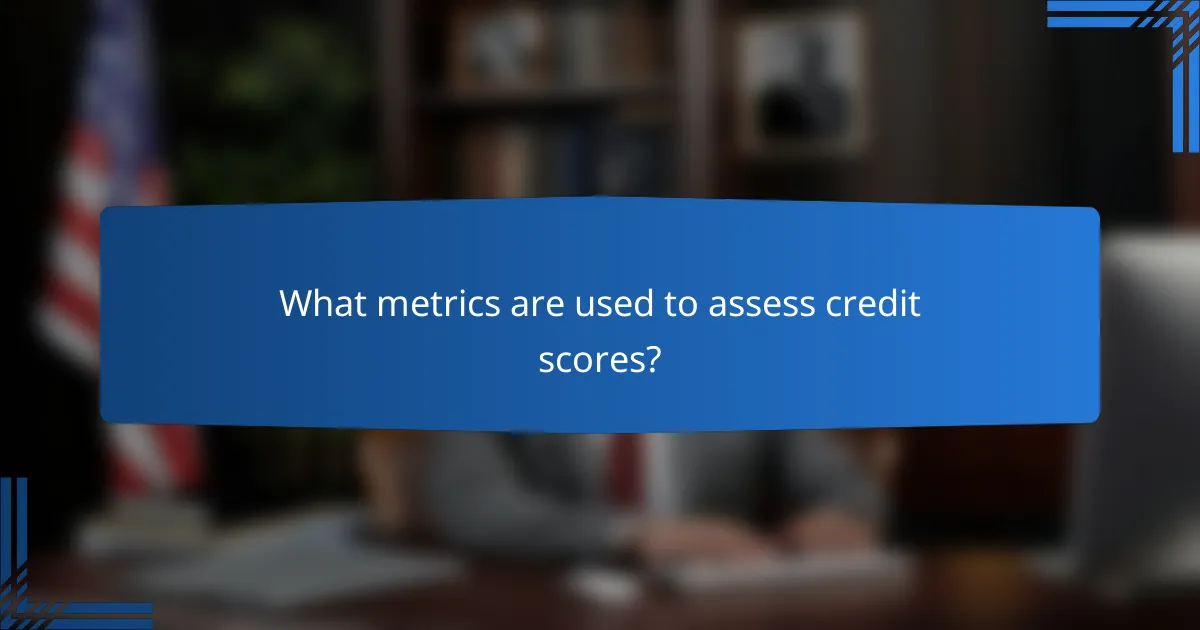Debt plays a crucial role in determining credit scores, particularly in the UK, where high debt levels can negatively impact your ability to secure loans or credit at competitive rates. Key factors such as the amount of debt, payment history, and the types of debt accounts are essential in shaping your credit profile. By understanding these elements, individuals can take proactive steps to manage their credit and enhance their scores over time.

How does debt impact credit scores in the UK?
Debt significantly affects credit scores in the UK by influencing various factors that credit scoring models consider. High levels of debt can lower your score, making it harder to obtain loans or credit at favorable rates.
Increased credit utilization ratio
Your credit utilization ratio is the percentage of your total available credit that you are currently using. A high ratio, typically above 30%, can negatively impact your credit score, as it suggests you may be over-relying on credit. Keeping your utilization below this threshold is advisable to maintain a healthy score.
For example, if you have a total credit limit of £10,000 and your outstanding debt is £4,000, your utilization ratio is 40%. This level may raise concerns for lenders about your credit management.
Negative payment history effects
Payment history is one of the most critical factors in determining your credit score. Late payments, defaults, or missed payments can lead to significant drops in your score. Even a single late payment can remain on your credit report for up to six years, affecting your ability to secure new credit.
To avoid negative impacts, always aim to pay your bills on time. Setting up direct debits or reminders can help ensure you don’t miss payments.
Length of credit history considerations
The length of your credit history also plays a role in your credit score. A longer credit history can demonstrate reliability and responsible credit use, which can positively influence your score. Conversely, a short credit history may hinder your score, especially if you have high debt levels.
To build a strong credit history, consider maintaining older credit accounts even if they are not actively used. This can help improve your average account age, which is beneficial for your credit profile.

What factors influence credit scores related to debt?
Several key factors influence credit scores in relation to debt, including how much debt you have, your payment history, and the types of debt accounts you hold. Understanding these elements can help you manage your credit more effectively and improve your score over time.
Credit utilization percentage
Credit utilization percentage is the ratio of your current credit card balances to your total available credit limits. This metric is crucial because it typically accounts for a significant portion of your credit score, often around 30%. Keeping your utilization below 30% is generally recommended to maintain a healthy score.
For example, if you have a total credit limit of $10,000 and your current balance is $2,500, your credit utilization is 25%. Lowering this percentage can positively impact your score, so consider paying down balances or increasing credit limits if possible.
Payment history accuracy
Payment history is the most influential factor affecting your credit score, representing about 35% of the score calculation. Timely payments on your debts, including credit cards, loans, and mortgages, contribute positively, while late or missed payments can severely damage your score.
To maintain an accurate payment history, regularly check your credit reports for errors and ensure all payments are made on time. Setting up automatic payments or reminders can help avoid late payments.
Types of debt accounts
The types of debt accounts you hold can also influence your credit score. A diverse mix of credit, such as revolving accounts (like credit cards) and installment loans (like mortgages or auto loans), can be beneficial. Credit scoring models often favor consumers who can manage different types of credit responsibly.
However, it’s essential to avoid taking on unnecessary debt just to diversify your credit mix. Instead, focus on managing existing accounts well and only consider new types of credit when it makes financial sense for your situation.

What metrics are used to assess credit scores?
Credit scores are evaluated using various metrics that reflect an individual’s creditworthiness. The most common scoring models are FICO and VantageScore, which consider factors such as payment history, credit utilization, and length of credit history.
FICO score components
The FICO score is composed of five main components: payment history, amounts owed, length of credit history, new credit, and types of credit used. Payment history accounts for about 35% of the score, making it the most significant factor. Keeping payments on time is crucial for maintaining a healthy score.
Amounts owed, which includes credit utilization, contributes around 30% to the FICO score. It’s advisable to keep credit utilization below 30% of available credit to positively impact your score. Length of credit history, making up about 15%, benefits from maintaining older accounts, as longer histories generally indicate reliability.
VantageScore metrics
VantageScore also evaluates creditworthiness using similar components, including payment history, age and type of credit, percentage of credit utilization, total balances, and recent credit inquiries. Payment history is weighted heavily, similar to FICO, and is essential for a strong score.
One notable difference is that VantageScore considers the overall credit utilization ratio across all accounts, rather than individual accounts. Keeping this ratio low can significantly enhance your score. Additionally, VantageScore has a more forgiving approach to recent credit inquiries, which can be beneficial for consumers seeking new credit.
Credit report details
Your credit report is the foundation for your credit score and includes detailed information about your credit accounts, payment history, and any public records like bankruptcies. Regularly reviewing your credit report is essential to ensure accuracy and to identify any potential issues that could negatively affect your score.
Disputing inaccuracies on your credit report can lead to score improvements. Consumers are entitled to one free credit report per year from each of the major credit bureaus. Monitoring your report can help you understand how different factors impact your credit score and guide you in making informed financial decisions.

How can debt management improve credit scores?
Effective debt management can significantly enhance credit scores by demonstrating responsible financial behavior. By making timely payments and reducing overall debt levels, individuals can positively influence their creditworthiness.
Debt repayment strategies
Implementing effective debt repayment strategies is crucial for improving credit scores. The snowball method, where you pay off the smallest debts first, can boost motivation, while the avalanche method focuses on paying off high-interest debts first to save money over time.
Consider setting up automatic payments to ensure bills are paid on time, as payment history is a key factor in credit scoring. Aim to keep credit utilization below 30% of available credit to further enhance your score.
Credit counseling services
Credit counseling services provide guidance on managing debt and improving credit scores. These organizations can help create a personalized budget, negotiate with creditors, and offer educational resources on financial management.
Before choosing a credit counseling service, verify their credentials and ensure they are accredited by a reputable organization. Many services may offer free consultations, allowing you to assess their effectiveness without financial commitment.
Debt consolidation options
Debt consolidation involves combining multiple debts into a single loan, often at a lower interest rate. This can simplify payments and potentially reduce monthly expenses, making it easier to manage debt and improve credit scores.
Options for debt consolidation include personal loans, balance transfer credit cards, or home equity loans. Evaluate the terms carefully, as some options may have fees or require collateral, which could impact your financial situation.

What are the implications of poor credit scores due to debt?
Poor credit scores resulting from high debt levels can lead to significant financial consequences, affecting your ability to secure loans and favorable terms. Individuals with low credit scores often face higher costs and limited access to credit resources.
Higher interest rates on loans
When applying for loans, a poor credit score typically results in higher interest rates. Lenders view individuals with low credit scores as higher risk, which leads them to charge more to offset potential losses. For example, while a borrower with good credit might secure a mortgage at 3%, someone with a poor score could see rates rise to 5% or more.
This increase in interest rates can substantially raise the total cost of borrowing. Over the life of a loan, even a small percentage increase can translate into thousands of dollars in additional payments.
Difficulty in obtaining credit
A low credit score can make it challenging to obtain credit cards or personal loans. Many lenders have minimum credit score requirements, and those with poor scores may find themselves denied outright. Even if credit is granted, the terms may be unfavorable, such as lower credit limits or higher fees.
To improve your chances of obtaining credit, consider working on your credit score by paying down existing debts and ensuring timely payments. This proactive approach can help you qualify for better options in the future.
Impact on rental applications
Landlords often check credit scores as part of the rental application process. A poor credit score can lead to rejection or require additional security deposits. Many landlords view low credit scores as a sign of financial instability, which can make them hesitant to approve a lease.
To enhance your rental application, consider providing references or proof of steady income. Demonstrating financial responsibility in other areas can help mitigate concerns about your credit score.
